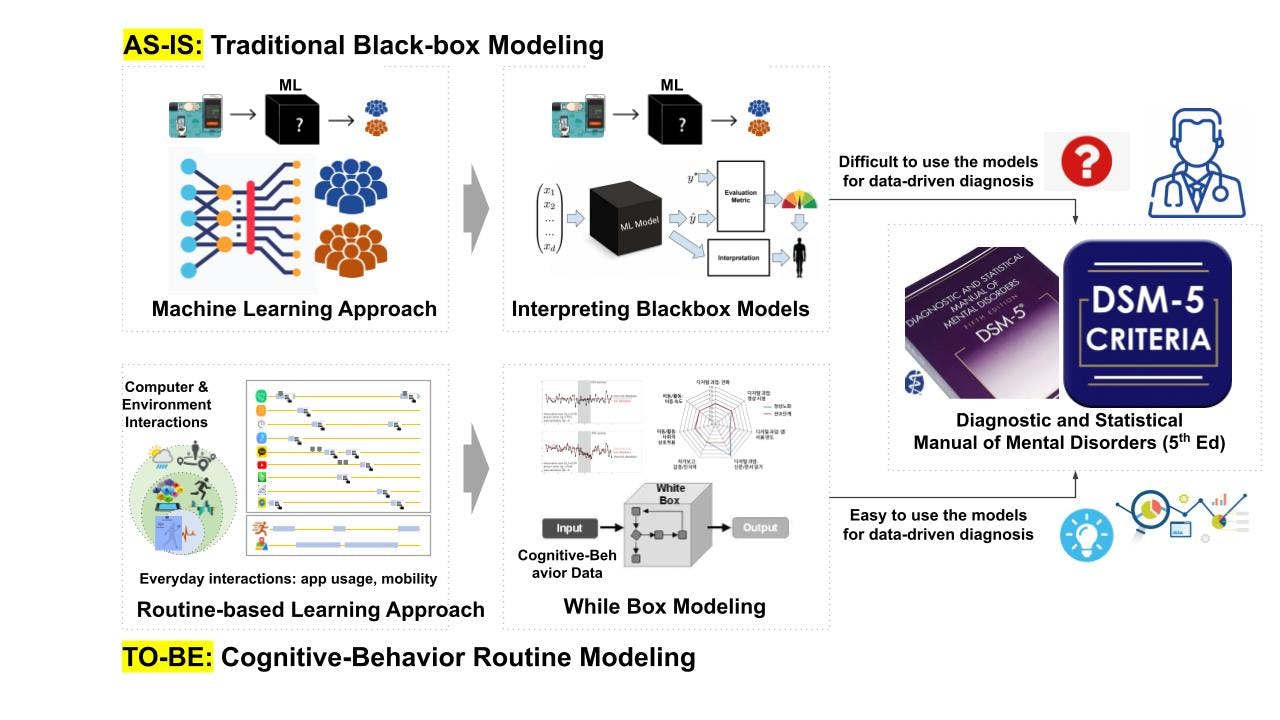
According to a recent survey by the Ministry of Health and Welfare (2021), it was found that major mental health indicators (depression risk and suicidal ideation rate) deteriorated significantly, especially among young people in their 20s and 30s. The rate of depression risk group was 22.8%, which was about 6 times higher than 3.8% in 2018, before COVID-19, and the rate of suicidal thoughts was 16.3%, which is about 3.5 times higher than 4.7% in 2018. In particular, the proportion of those in their 20s and 30s at risk for depression was 30.0% and 30.5%, respectively, more than twice that of those in their 60s, indicating that young people are more negatively affected by COVID-19. The Korea Insurance Research Institute (2021) predicted that the socioeconomic cost of mental illness will reach 8.6 trillion won by 2030, and the actual cost is expected to increase further due to the prolonged COVID-19.
There is a strong need to develop digital health technology for early intervention in mental health. Early intervention and proactive management of mental illness can improve the quality of life of patients as well as significantly reduce socioeconomic costs. However, it is difficult to provide appropriate treatment in a timely manner due to the low accessibility of the existing mental health visit services or potential stigma (OECD, 2014). Access to mental health services can be greatly enhanced with digital health technology as it can provide personalized health care and medical services.
This project aims to develop a data-driven mental health care framework that can proactively track and manage an individual's mental health state based on mobile device usage and daily activity data collected via mobile and wearable devices. This project builds upon existing machine learning studies that infer the user's mental health status by extracting meaningful features from digital interaction and location/activity data collected from mobile and wearable devices (Lee et al. ., 2019). We argue that it’s difficult to use such “black box models” in real clinical scenarios. Currently, the Gold Standard for Mental Health Diagnosis is “DSM-5” (Diagnostic & Statistical Manual of Mental Disorders, 5th Ed) (APA, 2013). Since DSM-5 mainly uses behavioral routines, our goal is to leverage the data collected from mobile and wearable devices to extract behavioral routines for clinical diagnosis (e.g., making a phone call or responding to a received message). We expect that data-driven routine modeling and visualization helps to overcome the limitations of traditional self-report based DSM-5 diagnoses and provide new foundations for enabling proactive intervention services in everyday contexts.



